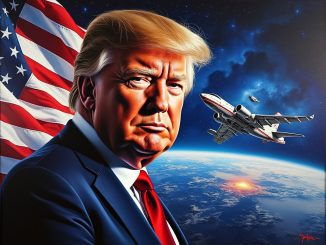
The acquisition of United States Steel Corp. (X) by Nippon Steel Corp. (5401), a deal valued at $14.1 billion, has encountered significant regulatory and political hurdles, leading to a series of developments that highlight the tension between economic interests and national security considerations in international business deals.
The Committee on Foreign Investment in the United States (CFIUS) has extended the deadline for Nippon Steel to abandon its takeover bid, pushing it from February 2 to June 18, 2025, according to a report by Bloomberg. This extension comes in the wake of President Joe Biden’s order to block the merger, an action which Nippon Steel and U.S. Steel argue was influenced by political motives rather than genuine security concerns.
The extension of the deadline coincides with the previously set date for finalizing the merger, suggesting both companies’ commitment to seeing the deal through despite the political pushback. This scenario was further complicated when Nippon Steel and U.S. Steel challenged the CFIUS’s decision in a federal appeals court, claiming that the committee did not adequately assess the deal on national security grounds.
The political dimension of this corporate saga extends beyond U.S. borders with Japan’s involvement. Japanese Prime Minister Shigeru Ishiba is reportedly arranging a visit to the U.S. to meet with the incoming President Donald Trump, where the Nippon Steel deal might be on the agenda. This meeting underscores the diplomatic efforts Japan is willing to undertake to support its corporate interests abroad, especially in light of previous U.S. administration decisions that have stymied such deals.
Moreover, the report notes that the Liberal Democratic Party of Japan has not remained silent on the issue. The ruling party has issued a resolution urging the U.S. to reverse its decision and provide a clearer explanation regarding the security concerns that led to Biden’s order. This resolution reflects not only the economic implications of the deal for Japan but also the broader strategic relationship between the two nations, which has been historically strong yet occasionally tested by such economic disputes.
The dynamics at play here reveal the complex interplay of economic strategy, national security, and international diplomacy. The extension granted by CFIUS, while providing more time for negotiation or legal recourse, also signifies the ongoing debate over how much foreign investment in critical industries like steel should be allowed, particularly when it involves nations perceived as allies but with whom there can be strategic competition.
The outcome of this deal could set precedents for future foreign investments in the U.S., particularly in sectors deemed vital to national security or economic stability. As both companies and governments navigate these waters, the global business community watches closely, understanding that the decision could influence international trade policies and corporate strategies for years to come.
WallStreetPit does not provide investment advice. All rights reserved.
- Bulenox: Get 45% to 91% OFF ... Use Discount Code: UNO
- Risk Our Money Not Yours | Get 50% to 90% OFF ... Use Discount Code: MMBVBKSM
Disclaimer: This page contains affiliate links. If you choose to make a purchase after clicking a link, we may receive a commission at no additional cost to you. Thank you for your support!


Leave a Reply